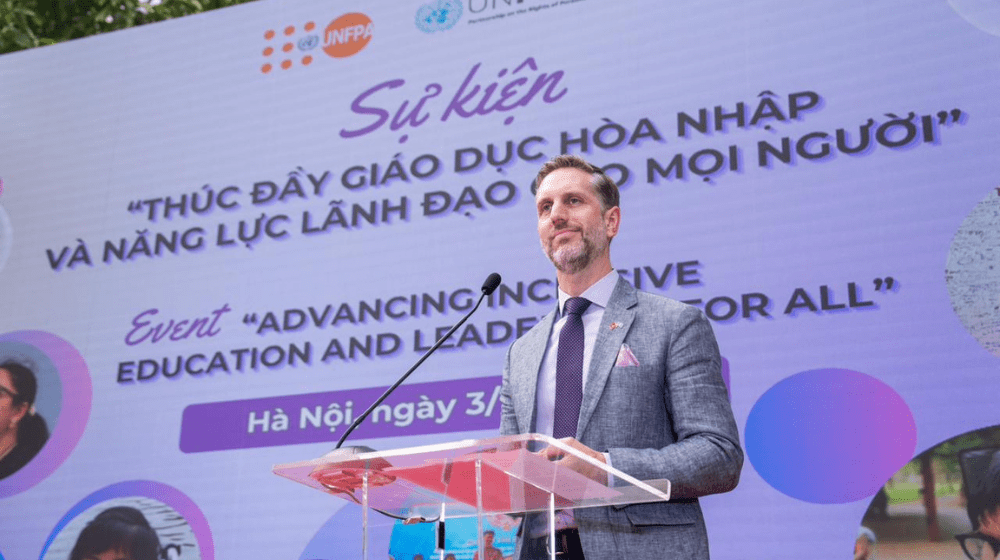Distinguished Guests, Dear Friends, Welcome everyone
Today we are recognising the resilience, strength and invaluable contributions of persons with disabilities (PWD) in Viet Nam and across the world. As our Resident Coordinator already said, this year's theme underscores our commitment to creating a society where every individual, regardless of their abilities, can thrive and contribute to a better world.
Too often, Persons with disabilities are denied the right to full social, economic and political participation, resulting in policies that exclude and even harm them. To address these barriers, we must uplift their voices, expand their access to opportunities, support their agency and build networks of solidarity.
Nowhere is the need for the inclusion and leadership of PWD more important than in humanitarian crises and conflicts. PWD are among the most vulnerable when disasters strike, often experiencing mortality rates two to three times higher than the general population. Women and girls face heightened risks due to gender bias and other identity factors such as age, race and ethnicity. In times of crisis, exploitation and abuse surge, placing women and girls with disabilities, who already face disproportionate rates of sexual and gender-based violence, at even greater risk.
Leadership begins with inclusion. This means actively recognising PWD, empowering them to lead on issues critical to their health, rights, and well-being, and listening to their voices.
Young women and girls with disabilities have the lowest levels of sexual and reproductive health information and education. From data published by UNFPA, we know that more than half of women with intellectual disabilities have been told they should not have a child, undermining their bodily autonomy and decision-making power.
In some developing countries, 29% of births by mothers with disabilities are not attended by skilled health workers, and 22% of married women with disabilities have an unmet need for family planning. This is often higher in rural areas.
Without access to sexual and reproductive health services, people with disabilities are at higher risk of unwanted pregnancies and sexually transmitted infections, including HIV/AIDS.
In Viet Nam, the story of a bunch of chopsticks is a well-known folktale that carries a meaningful lesson about unity and strength. In this story, a father teaches his children an important lesson by showing them that a single chopstick can be easily broken. He then demonstrates that a bunch of chopsticks, when held together, becomes much harder to break. This simple yet profound demonstration illustrates the power of unity and collective strength.
So that we can all thrive, let us be like the bunch of chopsticks.
Standing together, supporting one another and overcoming challenges together. Our collective strength will enable us to build a more resilient future. As our Resident Coordinator said: Together, we can make a difference.


